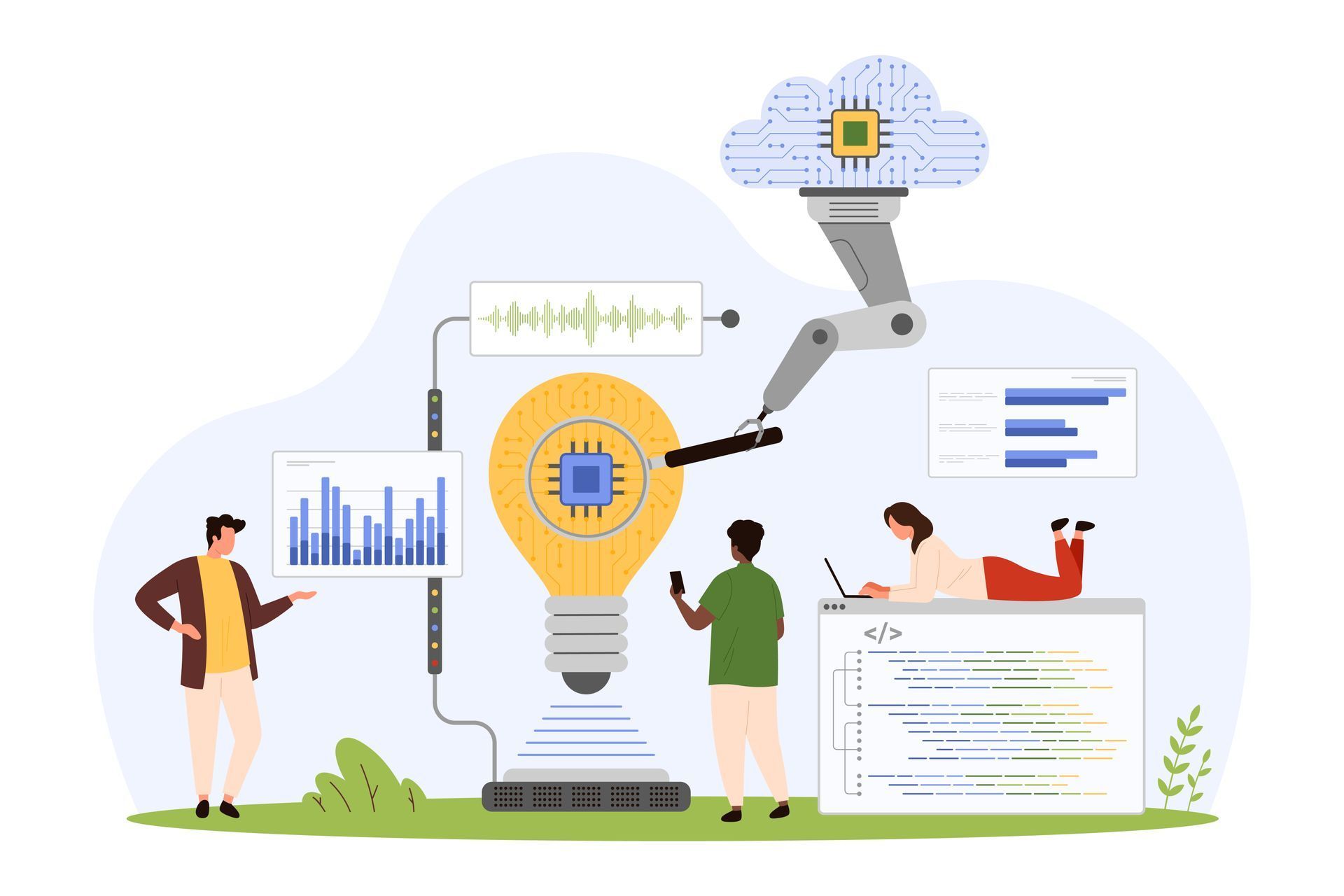Exploring Global Opportunities: Benefits of Studying in the US
The United States has long been considered a popular choice of destination for higher education among aspiring students. Its diverse and comprehensive system attracts students globally, offering them a unique blend of academic excellence, cultural exposure, and professional opportunities that are unparalleled. In this blog, we will explore the benefits of pursuing a higher education degree in the US, shedding light on how it can be a transformative experience for students.
Academic Excellence and Innovation

The US is home to some of the world's most prestigious universities and colleges, renowned for their academic rigour, cutting-edge research, and innovation. While Ivy League schools often grab the spotlight for their academic prestige, numerous universities and institutions in the US offer equally compelling programmes, cutting-edge technology, robust internship, and placement opportunities. The Public Ivies , such as the University of Michigan and UC Berkeley, offer exceptional and diverse programmes. Similarly, the Little Ivies , including Amherst and Williams Colleges, provide an intimate and rigorous liberal arts education.
These schools, alongside tech-focused institutes like Caltech and Rochester Institute of Technology, ensure a holistic and challenging educational experience that rivals their Ivy counterparts. Furthermore, the US education system emphasises hands-on learning and professional development through partnerships with leading companies and organisations. Some internationally recognised universities in the US include:
- John Hopkins University , Maryland
- University at Buffalo , New York
- Auburn University , Alabama
- The University of Utah , Utah
- Gonzaga University , Washington
- University of South Carolina , South Carolina
- Cleveland State University , Ohio
- Rutgers University–Camden , New Jersey
- Washington & Jefferson College , Pennsylvania
- AMDA College and Conservatory of the Performing Arts , New York and California
Diverse Specialisations and Flexible Curriculum

The US education system offers a dynamic pathway from undergraduate to postgraduate studies. Bachelor's degrees , usually spanning four years, start with a broad curriculum before focusing on a major subject, allowing students to explore varied interests. This foundation supports practical experiences like internships.
Transitioning to postgraduate studies, Master’s programmes delve deeper into specialised areas over one to two years, while Doctoral degrees focus on extensive research and original contributions, requiring three to seven years. This progression emphasises flexibility, critical thinking, and advanced professional skills, with both stages encouraging hands-on experience and fostering academic and career excellence. Some popular choices of degree courses include (but are not limited to):
- MBA & Business Management
- Finance & Financial Technology
- Hospitality & Tourism Management
- Computer Science & Artificial Intelligence
- Advertising & Digital Marketing
- Public Health & Nursing
- Psychology & Neuroscience
- Mechanical & Aerospace Engineering
- Architecture
- Film & Media Studies
Cultural Diversity and Global Perspective

The multicultural campus environment in the US universities offers students a global perspective and exposure to diverse viewpoints. This cultural immersion fosters tolerance, adaptability, and a deeper understanding of global issues, preparing students to thrive in an increasingly interconnected world. Networking with peers from various backgrounds also opens doors to international opportunities and collaborations , enriching the student’s academic and social experiences. Additionally, engaging with a wide range of cultures on campus encourages students to develop cross-cultural communication skills, which are crucial in the global job market. These experiences allow students to approach professional challenges with a unique and valuable perspective, making them more attractive to future employers who value diversity and inclusivity.
Post Study Work and Career Opportunities

The pursuit of higher education in the United States presents international students with a distinctive post-graduation pathway: the chance to work within the country through a post-study work visa . This pathway enables graduates to translate their academic pursuits into valuable work experience, often seen as a pivotal step in professional development. Upon graduation, students are afforded the chance to engage in Optional Practical Training (OPT) , allowing them to work in their academic field for up to a year, with STEM graduates eligible for a two-year extension.
Following OPT, the transition to an H1B visa is an avenue available for those seeking sustained employment and potentially permanent residency in the US. This integration into the professional landscape is a unique aspect of the American education system, offering international students a competitive edge in their career trajectories.
For graduates exploring the US job market, the outlook is positive across several dynamic sectors. In technology, fields such asAI and cybersecurity are not only expanding rapidly but also seeking graduates with strong analytical and technical capabilities. For instance, a recent study showed that there were 750,000 openings in the cybersecurity sector in 2023 within the US job market alone. Employment in these areas is further supported by an increased reliance on sophisticated technology that necessitates advanced problem-solving skills.
Healthcare is another sector witnessing substantial growth, with AI applications being a significant driver of this expansion. The market for healthcare including applications of AI is projected to grow over 16% by 2030 in the US. Renewable energy is also an “in-demand” field, with an emphasis on sustainability and clean energy solutions. Corporate commitments to renewable energy are robust, and this sector is set to experience increased investment and over 15% increase in roles that support the transition to a greener economy.
Research and Technological Advancements

The US is at the forefront of technological innovation and research, offering students unparalleled opportunities to engage in ground-breaking work. With substantial funding ($210bn in 2024) and resources dedicated to research in fields such as engineering, biotechnology, computer science, and more, students can participate in projects that have the potential to make significant impacts on society. This exposure to advanced technology and research methodologies prepares students for high-level careers in academia, industry, and research. A round-up of ongoing research in the US includes:
Artificial Intelligence: AI continues to lead, with a particular focus on explainable AI, advancements in natural language processing, and AI applications in healthcare for disease diagnosis.
Climate Change and Sustainability: This field is vital, exploring the impact of climate change on biodiversity, sustainable agriculture, and carbon capture technologies.
Genetic Engineering: With the CRISPR revolution, research spans from therapies for medical conditions to agricultural enhancements and ethical considerations in genetic privacy.
Quantum Computing: A rapidly evolving area that holds the potential to revolutionise industries through quantum algorithms, quantum cryptography, and quantum internet.
Health Sector Innovations: Topics like neuro-technology, digital therapeutics, and personalised medicine are at the forefront, changing the way we approach healthcare and treatment.
Cybersecurity: As digital threats evolve, so does the research in protecting against them, with studies on quantum-safe cryptography, IoT security, and AI for threat detection.
Space Exploration and Astrophysics: This research is reaching for the stars, literally, with studies on exoplanet discoveries, dark matter, and the future of space telescopes.
Renewable Energy: With a focus on sustainable power sources, research is delving into perovskite solar cells, grid-scale energy storage, and bioenergy advancements.
Each of these topics not only represents a field of study but is also indicative of the areas where jobs and industries may see significant growth in the coming years. They reflect a blend of understanding fundamental aspects of our universe and life on Earth, as well as solving pressing global issues through technological innovation.
Personal Development and Independence

The experience of studying in the US is profoundly transformative , fostering personal growth, independence, and self-confidence. Navigating a new educational system and culture teaches students resilience, time management, and problem-solving skills.
The vibrant campus life , extracurricular activities , and community service opportunities also allow students to explore their interests, develop leadership skills , and build lifelong friendships. Pursuing higher education in the United States is more than just an academic endeavour; it is a journey that shapes individuals personally, professionally, and intellectually. The benefits of a US degree extend far beyond the classroom, offering students a holistic education that prepares them for success in a globalised world.
While the path may be challenging, the rewards are immeasurable, making it a worthwhile investment in one's future. Whether it's through engaging with diverse cultures, contributing to cutting-edge research, or developing a versatile skillset, the experience of studying in the US is unparalleled, opening doors to endless opportunities and fostering a lifetime of personal and professional growth.



